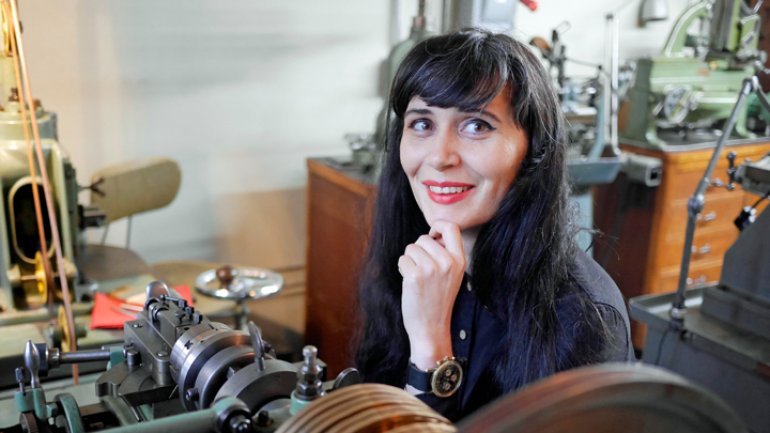The Queue: Brittany Nicole Cox
Discover what individuals from our craft community are into right now.
↑ Based in Seattle, Washington, Brittany Nicole Cox is an antiquarian horologist trained in the repair of mechanical objects or automata.
Photo: Courtesy of Brittany Nicole Cox
Introducing the Beauty series of The Queue
A weekly roundup for and by the craft community, the Beauty series of The Queue introduces you to the makers, writers, curators, and more featured in the most recent issue of American Craft. We invite them to share their shortlist of exciting projects, people to follow, and content to consume to help you stay dialed into what's happening in the world of making.
There's magic in the mechanical, and Brittany Nicole Cox wants to keep it alive
Based in Seattle, Washington, Brittany Nicole Cox is an antiquarian horologist with expertise in the repair of automata – mechanical objects, including clocks. She is one of three craftspeople featured in the Beauty issue in "Beauty After Damage," an exploration of the practices of conservation, restoration, and mending. @nicocurio
How do you describe your work or practice in 50 words or less?
I use antique machinery, techniques, and tools married with new and historic materials to preserve cultural heritage and make new objects. I work with machines made by magicians and scientists of our past to record the passing of time, bring inanimate forms to life, and pluck music from resonating steel combs.
In these times of COVID-19 isolation, social unrest, and calls for change, where are you finding beauty?
I find beauty in seeing the love that is bringing people together in these trying times and to stand up for what is right. There is also beauty in the nature of time itself. I know that everything passes with time, and as trying as these moments are for us, I believe things will continue to change for the better.

↑ Brittany's feature in "Beauty After Damage" takes a close look at her work repairing a mechanical singing bird box.
Photo: Courtesy of Brittany Nicole Cox
What are your thoughts on the relationship between craft and beauty?
There is a long tradition in craft, generations of knowledge that have worked together to build beautiful things meant to inspire and invoke the sublime. I carry this inheritance, weaving the thread of lineage lost and gained into my work. There is a discipline in handmade objects, especially those made to perfection with rigid tolerances. They are proof that beauty can drive someone to master many disciplines for the sake of something greater.
What’s one of your favorite tools in your workshop?
Miniature compasses. I have a small collection of these. Watchmakers would use these tiny compasses by placing one above an oscillating balance wheel in a watch. Here the arrow of the compass would tell the watchmaker whether or not the balance was magnetized by oscillating with the balance or pointing at true north.
What’s an exhibition or art project you think the world should know about?
The new bestiary wing at the Museum of Jurassic Technology. It’s a wonderful extension to one of my favorite places in the world. Stepping into the museum is an experience unlike any other. You will leave filled with wonder, curiosity, and an unfamiliar joy.
I find beauty in seeing the love that is bringing people together in these trying times and to stand up for what is right.
If you could purchase any artists' work for your home or studio, whose would it be and why?
I would purchase an ornamental turning by Jean-Claude Charpignon. He is creating pieces inspired by the works of 16th- and 17th-century turners on lathes he has mostly fashioned from scratch. His work rivals the pieces made over three hundred years ago by kings, many of whom were turners. We've lost the technology behind many of these works.
Help raise up voices from the craft community
Become an American Craft Council member and support nonprofit craft publishing. Join a community of like-minded readers who are passionate about making and help grow the number of lives craft has touched.


